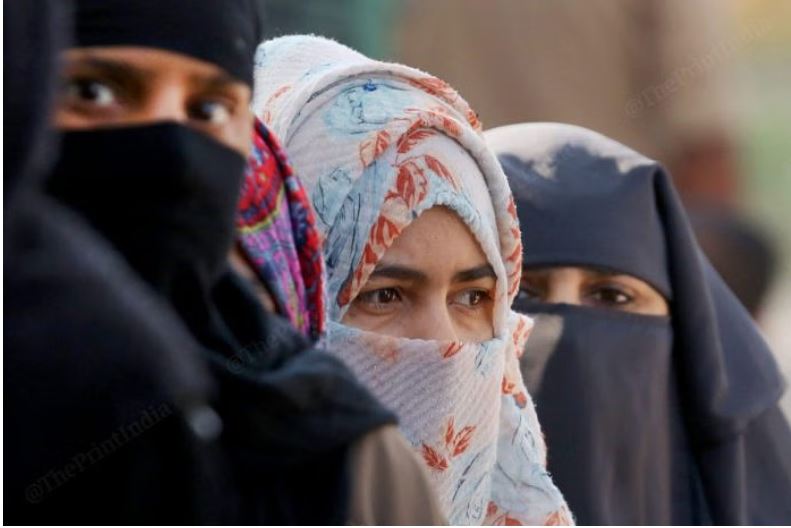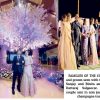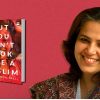Goa is abuzz with excitement as vintage bike and car owners, users, collectors and fans are decking […]

LIBERALS DON’T WANT MUSLIM WOMEN TO DEMAND RIGHTS IN THE HINDUTVA ERA!By Zakia Soman
In the News, July 12- July 18, 2025 July 11, 2025As Banu Mushtaq’s International Booker-winning ‘Heart Lamp’ shows, Muslim women seeking justice are neither a figment of imagination, nor a part of some political conspiracy.
Banu Mushtaq’s Heart Lamp won the 2025 International Booker Prize for poignantly telling stories based on the lived realities of Muslim women in a male-dominated society. The jury lauded her work for its “astonishing portraits of survival and resilience”. Originally written in Kannada and translated into English by Deepa Bhasthi, the stories are universal. The women portrayed can be found across India. Mushtaq’s work brings alive the pathos and ingenuity with which ordinary women negotiate the complexities imposed by patriarchy.
Her work also highlights that Muslim women seeking justice are neither a figment of imagination nor a part of some political conspiracy. Rather, they remind us of gaps such as unjust personal laws in our democratic system. Forever, Muslim women seeking justice within family and community have been demonised by conservatives as ‘bad women’. Speaking to the media, Banu recalled how she was threatened and attacked for amplifying the voices of women in a conservative society.
The ordeal of Muslim women
I am not suggesting that Indian women as a whole have attained substantive equality as guaranteed by the Constitution. This appears distant, even eight decades after Independence. But Muslim women additionally bear the brunt of belonging to a religious minority. They have to deal with patriarchal orthodoxy within the community and divisive communal onslaught outside. Unlike Hindu and Christian women, they face legal discrimination in family matters without reformed codified Muslim personal laws. This is an injustice suffered by women alone – even as the whole community lives in poverty, economic and educational backwardness, and political apathy. Rising religious polarisation and hate politics have made matters worse in recent years.
Muslim women have come under the spotlight since 2014. The women-led movement against instant triple talaq had been going on since 2012, gaining momentum when Shayara Bano approached the Supreme Court in 2016. The Union government then filed an affidavit supporting the abolition of instant triple talaq.
Many women survivors of triple talaq, as well as my organisation, joined the petition. We argued that the “talaq talaq talaq” method of divorce was both un-Quranic and unconstitutional. A major campaign educating the public about the rights of women in Islam was undertaken. Thousands of women joined the movement. The conservative clergy defended the practice and fought for the preservation of the status quo.
To them, Shariat is divine and cannot be touched by anyone. Most Opposition political parties kept silent, except some parliamentarians who spoke out in their individual capacity. In 2017, the Constitutional Bench of the Supreme Court unanimously ruled that the practice of triple talaq was invalid. In 2019, the Centre brought a law punishing Muslim husbands pronouncing triple talaq with a jail term.
The Narendra Modi government has been accused of using Muslim women as tropes to further its politics. On one hand, Bharatiya Janata Party (BJP) leaders talk about the need for a Uniform Civil Code to help Muslim women. On the other, girls and women in hijab cannot be allowed inside schools and colleges in Karnataka.
Muslim women & majoritarian politics
Muslim women cannot be immune to majoritarian policies and rising hate crimes. While reform in family law is overdue, women need to be supported in areas such as education, jobs, health and housing. They need safety, security and a life with dignity and freedoms.
Women and children are the worst affected when homes are razed during riots or when bulldozers are deployed. It is ironic that no government could protect the rights of Muslim women since Independence, despite constitutional obligations. Only men with overtly religious identities were perceived as leaders. The Shah Bano episode remains a shameful chapter in our history.
It seems Indian Muslim women are obligated to live within predefined boundaries demarcated by conservative clergy – which are occasionally readjusted by the dominant politics of the day. In 1986, the Congress government quashed the maintenance given to Shah Bano by the court in 1985 to ostensibly uphold secularism. They surrendered to the patriarchal forces for fear of losing votes.
Between 1986 and now, the opportunity for reforming personal laws has not arisen. This speaks volumes about the stranglehold of patriarchy over our polity. Meanwhile, women continue to suffer from unilateral divorces, and archaic practices such as halala, muta marriages, polygamy, denial of guardianship of children, and denial of a fair share in property.
Our petition in the Supreme Court listed verses from the Quran, highlighting how Allah created man and woman as equals. In reality, misogynistic interpretations and misinterpretations abound. The unequal status of Muslim women is one of the key enigmas for our secular democracy.
By contrast, the Muslim woman herself shows exemplary behaviour. She knows her rights and duties as a Muslim and as a citizen in a democracy. She demands to be an equal Muslim and an equal citizen at once. I have routinely heard women survivors of the 2002 Gujarat riots saying that they want justice and not charity. Women fighting against triple talaq equipped themselves with Quranic teachings as well as knowledge of constitutional safeguards.
They saw no contradiction in demanding justice from both sources. Women fighting against the Citizenship Amendment Act (CAA) invoked constitutional values of equality, secularism, and non-discrimination as they sat on dharnas with the tricolour in their hands. However, it suited the conservatives to support this women-led agitation, unlike the one against triple talaq.
Women can be supported as long as they protest against state institutions and do not challenge the patriarchal status quo within the home and family.
Some liberals consider Muslim women’s demand for equal rights as inappropriate in times of Hindutva politics. But for women seeking justice within their lifetime, there is nothing called the correct time. Shayara Bano, Aafreen Rehman, Ishrat Jahan, Atiya Sabri, and Gulshan Parveen – all petitioners against triple talaq are living feminine beings. As are the women in Heart Lamp.
Zakia Soman is a women’s rights activist, columnist, and the co-founder of Bharatiya Muslim Mahila Andolan. Her X handle is @zakiasomanbmma. Views are personal.
(Edited by Zoya Bhatti)
Courtesy: The Print














